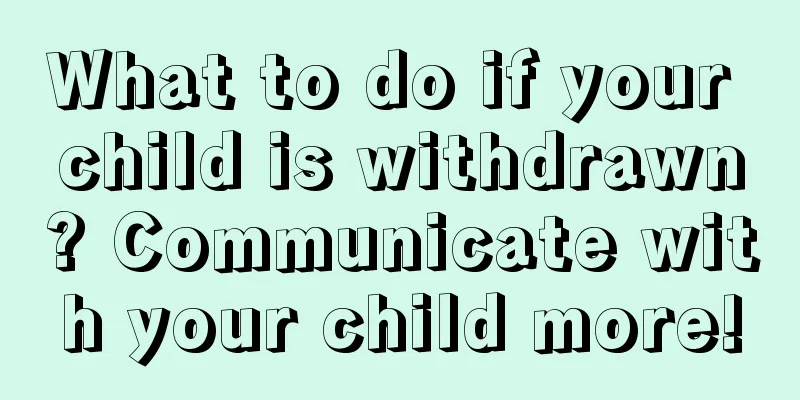Can babies eat pineapples?

|
The baby is still young, so the mother must be careful when choosing food for the baby. The ingredients in pineapples can easily cause allergic reactions, and some babies are naturally allergic to pineapples. It is best to give your baby a small amount to try, and then observe for a period of time. If there is no problem, then let your baby eat it in moderation. You can also cook the pineapple and eat it. Pineapples can irritate the stomach, so babies should eat them in small amounts as they have a delicate stomach. Can babies eat pineapples? Eat with caution. After the baby is 8 months old, you can let him eat some porridge and fruit to change the taste. This will help stimulate the baby's taste nerves. There are three ingredients in pineapples that may cause allergies in babies, so it is best to wait until after the age of 2 before feeding them to your baby. For fruits that are prone to allergies, such as pineapples, it is best to cook them before giving them to your baby. If infants and young children with allergies try pineapples for the first and second time, you should be especially careful. It is best to give the child a small amount first, and then observe whether a rash appears within two hours. If you are worried, observe for another three days to see whether other delayed allergic symptoms appear. If no allergies occur, it means that the child is not allergic to this fruit and can eat it with confidence in the future. Precautions for babies to eat pineapple 1. Peel and dice the pineapple, cut into slices or chunks, and cook in boiling water before eating. Bromelain begins to denature at 45℃~50℃, and more than 90% is destroyed at 100℃; glycosides can also be destroyed and eliminated at the same time; 5-hydroxytryptamine is soluble in water. The taste is also improved after boiling. 2. If you want to keep the fresh taste of pineapple, you can soak the sliced or chunked pineapple in salt water (the same saltiness as for cooking) for about 30 minutes, then rinse it with cold boiled water to remove the saltiness, which can also achieve the desensitization effect. 3. When eating for the first time, the baby should only eat a piece the size of a biscuit. If there is no abnormality, increase the amount appropriately next time. 4. Do not eat too much pineapple at a time, as excessive consumption is harmful to the stomach and intestines. What are the benefits of eating pineapple for sore throat? Pineapple can clear away heat and detoxify, promote salivation and quench thirst, has a cooling effect, and can protect the bronchi. It is effective for symptoms such as fever, cough, sore throat caused by colds, or sore throat caused by bronchitis. This is because the bromelain in pineapple is working. Pineapples are rich in nutrients and contain five times more vitamin C than apples. It is also rich in bromelain, which can help the body digest protein. It is most beneficial to eat pineapple after eating meat and greasy food. The fresh pineapple pulp is rich in nutrients such as fructose, glucose, amino acids, organic acids, protein, crude fiber, calcium, phosphorus, iron, carotene and various vitamins. |
<<: How do you know if your child is zinc deficient?
>>: Can children eat pineapples?
Recommend
What to do if your baby has a fever and runny nose
Babies having fever and runny nose is a situation...
Baby tonsillitis anti-inflammatory
Tonsillitis is a common disease, which is usually...
Neonatal hemolytic disease: good nursing measures are the key
If a newborn develops hemolytic disease, it will ...
Why do newborns sometimes roll their eyes?
When a newborn baby feels uncomfortable, mothers ...
What is the recipe for July baby
Nutritionists now advocate that children should b...
The child vomits suddenly
Children's bodies are in a developmental peri...
What should I do if children’s hands are peeling?
We all have experienced peeling skin. There are m...
What to do if your 5-month-old baby is allergic to milk
After the child is born, the mother begins to gra...
90-day baby development standard
Many parents do not fully understand the developm...
Symptoms of ADHD in Little Two
The symptoms of ADHD in children are quite obviou...
How to make baby eyelashes thick and long
All mothers hope that their babies can be healthy...
What should I do if my child has severe constipation?
Children's digestive systems are not yet full...
Add complementary food to your child
When the child reaches a certain age, it is actua...
Why do children feel sick when eating?
When feeding the baby, nausea symptoms are often ...
What should I do if my 5-month-old baby's chin turns red like eczema?
Eczema is a common skin disease in life, and as t...









